Joanne Rose - MSc Applied Paediatrics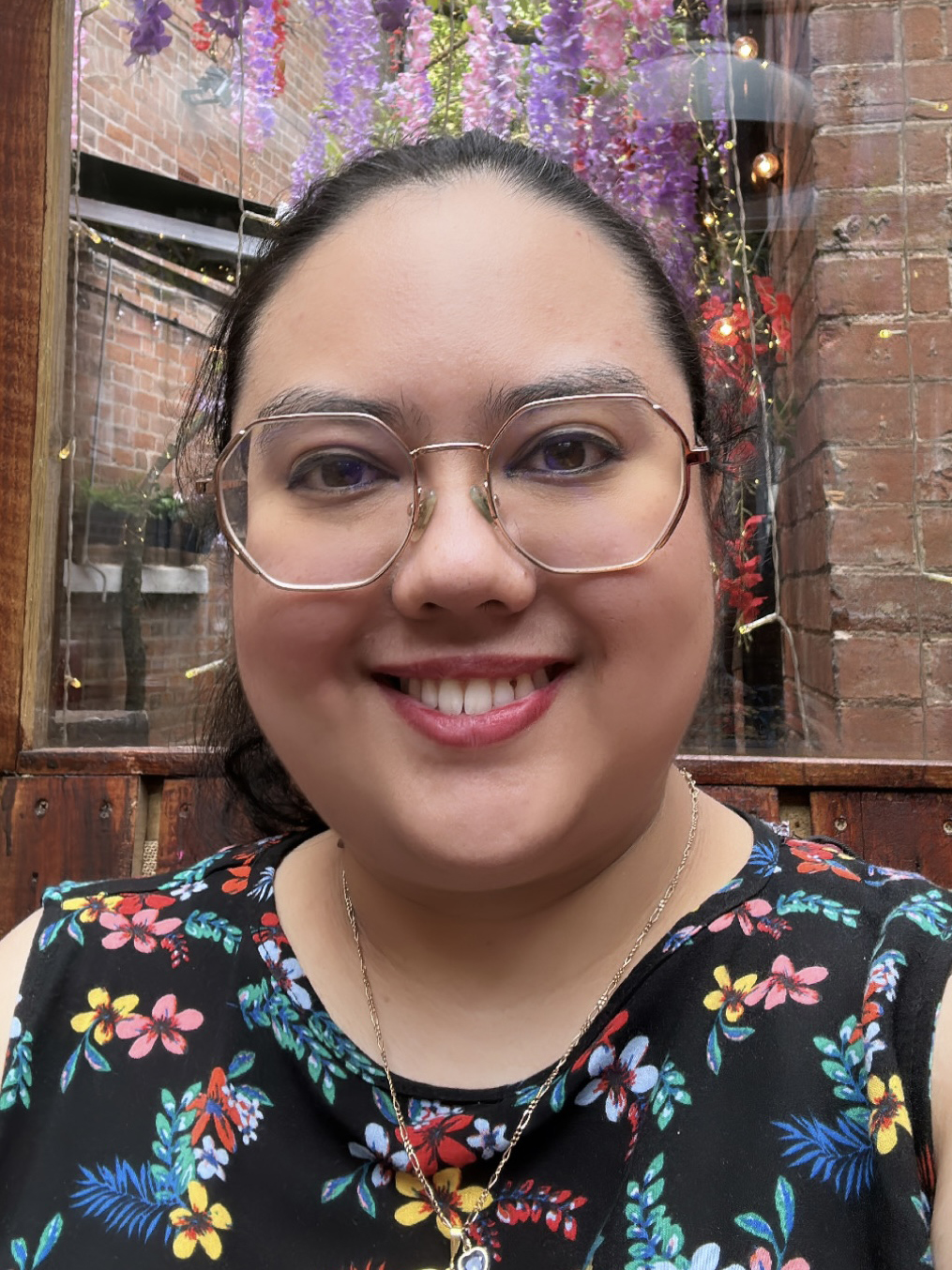
Why did you choose to study Applied Paediatrics at Imperial?
I chose to study Applied Paediatrics for 3 main reasons. Firstly, Imperial is renowned for its research in neonatal medicine as well as paediatrics. This meant that I would be learning from experts in the field, something that is a very unique opportunity. Secondly, the ability to do the MSc part-time fitted in really well with my schedule, especially whilst working full-time as a doctor. The fact that the course is online further makes this easier when planning my time. Finally, and importantly, I looked at the course content of different MSc programmes and found this course offered modules that interested me the most, and would also challenge me.
What has been your favourite part of the course?
My favourite part of the course has been the assignments. These have enabled me to delve deeper into topics covered in the material provided, or into related areas. I have also enjoyed the live classes as they are very interactive and solidify the material covered in our own times. They also enable me to connect with other students on the course, which is extremely important given a lot of the learning is done in our own time.
How do you incorporate the learning from the programme into your daily work?
The course material is released weekly, on the Friday prior to the Monday of when the week officially starts. This gives me the weekend to get ahead and focus on the lectures and more content heavy material. During the working week, I will generally try to allocate 1-2 hours each night to the work, and the flexibility means I can do more at the weekend if I know I’m working long-days or nights during the week. For the live classes, I have been quite lucky in that my work have been very flexible, allowing me half days annual leave, study leave or even just a few hours for me to attend the class online. Having completed the work for the week prior is important, but also knowing if specific tasks need to have been done prior means I can prioritise what needs to be done, and if I’m especially busy, move some things to the weekend after the class to finish things off.
How do you think this programme will impact your career?
I aim to enter Paediatric Specialty training and I believe this masters will show dedication to the specialty thus helping my application. I also believe the emphasis on research and getting better at critically reading research papers will help me in my future endeavours in research. The course also covers ethical and legal issues, which I encounter almost daily on the wards, and so the course also helps me in that respect.
Is there anything you would recommend to students starting out on the course?
I think organisation is incredibly important, especially if working full-time whilst doing the masters! Keep on track with what needs to be done and when by, so you can prioritise your MSc work and fit it in around your work and personal life. I would also recommend you ensure you can try to get study leave (or annual leave if not possible to get study leave) to attend the live classes. Trying to work whilst juggling a live class for 2 hours is extremely difficult and not ideal.
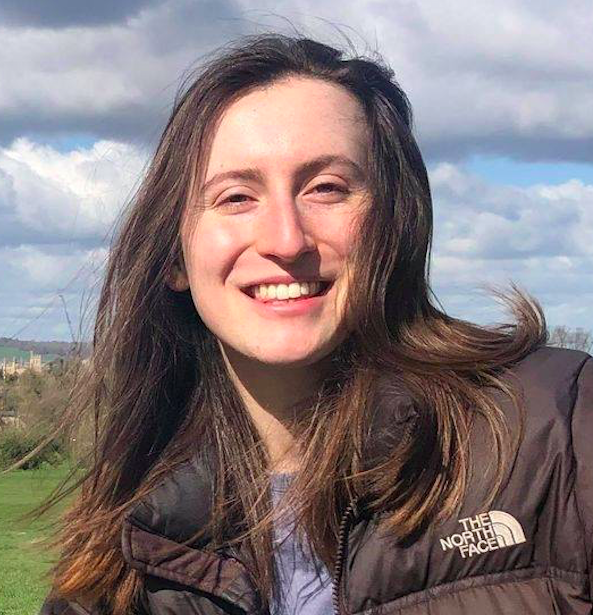 Maryn Brown - MSc Molecular Medicine
Maryn Brown - MSc Molecular Medicine
Why did you choose to study Molecular Medicine at Imperial?
I chose to study Molecular Medicine because I didn’t feel ready to narrow down to just one part of biomedical sciences! I wanted to have the opportunity to study lots of different topics within biomedicine to learn more about what I’m interested in. I also wanted to get as much research experience as possible during my MSc. The Molecular Medicine course was perfect for me – the range of topics covered is broad, and as part of the course assessments (writing a grant proposal, preparing a review article) you can choose which areas you want to learn about in more detail. As part of this course, students carry out a research project for a full six months, and there’s a great variety of projects on offer.
What has been your favourite part of the course?
My favourite part of the course has been the research project, which I carried out between March and August. It’s been amazing to work alongside people who are excited about research and want to solve interesting problems.
What was the topic of your mini-research project?
The topic of my mini research project was the effect of glycosylation inhibitor drugs on cells following viral infection. The mini research project was a great experience – it’s a great way to pick up practical skills before your actual research project starts! I chose to join a virology lab for my six month research project, so the mini research project was a great mini intro to virology lab skills for me!
How do you think this programme will impact your career?
The Molecular Medicine MSc has afforded me so many opportunities to develop my skillset, both in and out of the lab, and has opened up opportunities for me following the degree as well. I’m currently working in a research lab and I hope to eventually carry out a PhD in biomedical research – I don’t think that would have been possible for me if I hadn’t studied for this MSc!
Is there anything you would recommend to students starting out on the course?
To students starting on the course, I would say feel free to ask lecturers questions if you’re interested in their work. Also, if you’re finding anything difficult, let your course leaders know – they want to help you succeed on the course and enjoy it. And make the most of living in London!
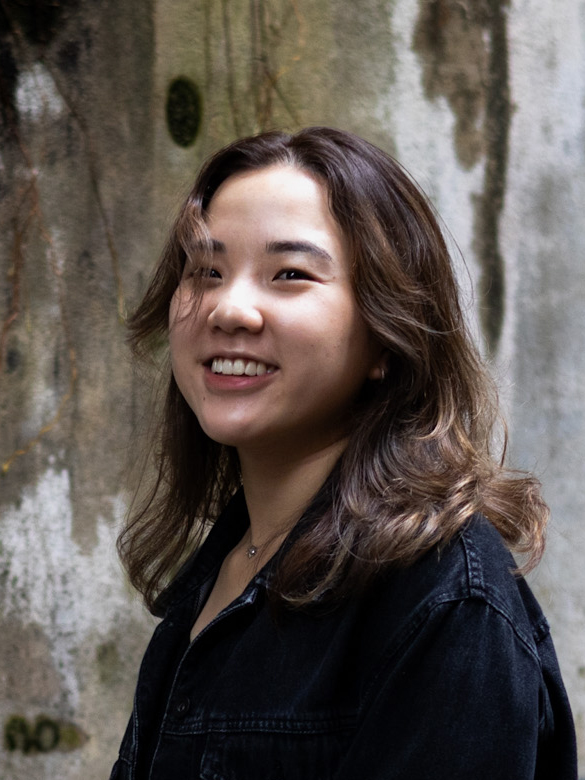 Kally Tan - MSc Molecular Medicine
Kally Tan - MSc Molecular Medicine
Why did you choose to study Molecular Medicine at Imperial?
I chose to study at Imperial because of its reputation institution as a globally recognised institution. Learning under a faculty, comprising industry-leading experts, and having well-equipped laboratories were important to me as I believe that these factors are crucial in a field such as biology. I also wanted to meet like-minded and exceptionally talented peers from different backgrounds who would not only challenge but also inspire me to push my intellectual boundaries.
What has been your favourite part of the course?
The 6-months research project is something I will always remember as I matured considerably as an aspiring scientist. I had the rare opportunity to work on exciting research that has therapeutic potential which may not have been possible in other institutions. I developed many lab skills and learned how to think critically, ask relevant questions, and problem-solve. While it was draining during certain periods, I always felt supported by my supervisor, PhD student mentors, and lab mates. While we always had great discussions that challenged my way of thinking and understanding, we also had a lot of fun outside the lab. Apart from gaining skills and knowledge, I was also able to make life-long friends.
What was the topic of your mini-research project?
Our mini-research project was based on investigating coronaviruses in light of the recent pandemic. The specific title of my group's project was – The Effects of Tunicamycin-induced Unfolded Protein Response on Interferon-β and Coronavirus Replication.
What’s the best thing about studying in London?
One of the best things about studying in London is being able to meet people from different countries and backgrounds and experience multiple cultures all in one city. There is always something new to try out be it a painting class or a new cafe. My personal favourite thing about London is that there are so many parks in the city. I love taking walks and dog-watching. Being able to have picnics with my friends in Hyde Park is also a huge plus!
Is there anything you would recommend to students starting out on the course?
A master's course is different from an undergraduate course. Attend lectures with the goal of learning, gaining exposure, and discovering your specific scientific interest instead of mainly wanting to score well on exams. The course is fast-paced so you will not be able to master everything in-depth. Identify your interests and focus on them. Speak to the lecturers after class and discuss the topic further with your course mates. When selecting your 6-months research project, don't make your decision based on the project alone. Your supervisor, colleagues, and lab environment (culture) are equally, if not more, important.
Karolina Sobala - MSc Molecular Medicine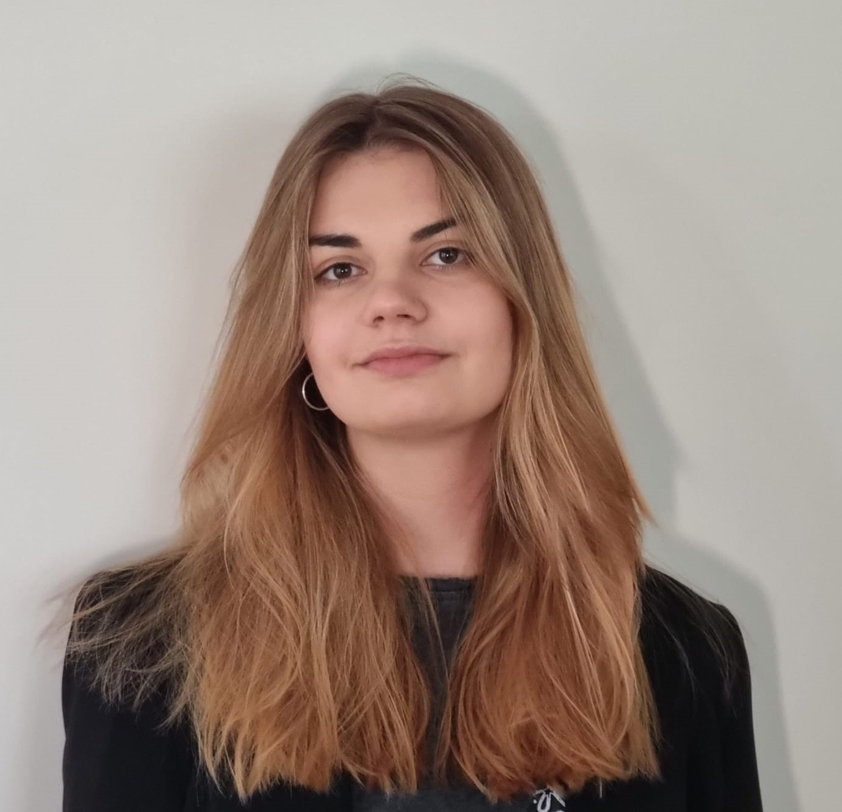
Why did you choose to study Molecular Medicine at Imperial?
I was attracted to research opportunities, the international atmosphere and Imperial’s remarkable reputation. The cutting-edge research facilities and ongoing research led by a group of renowned scientists from all around the world made pursuing Molecular Medicine at Imperial my top choice.
What has been your favourite part of the course?
I think my favourite part was the 6-month research project. I was fortunate to have an amazing lab team who supported me throughout the project. Thanks to their mentorship, I was able to enhance my academic and technical skills and explore a given research question in great detail.
What was the topic of your mini-research project?
The mini-research project focused on the effect of viral drugs proposed as a treatment for COVID-19 infection (e.g. Celgosivir) on the type I interferon protein levels associated with immune response. The project broadened our immunology as well as virology knowledge and enabled us to learn more about the mode of action of proposed drugs for COVID-19.
What’s the best thing about studying in London?
Food! The amount of restaurants that offer authentic food from every corner of the world is mind blowing. The transportation system is also very efficient, so it’s easy to navigate the city and explore different neighbourhoods. The amount and diversity lot of festivals, cinemas, theatres, and so on makes it impossible to get bored.
Is there anything you would recommend to students starting out on the course?
Manage your time wisely – there are times when exams and assignments can easily pile up and overwhelm you; that’s why time-management skills are crucial. Make use of all of the available university resources, take courses, and join societies that sound interesting to you. Most importantly, make sure to maintain a work-life balance and take care of yourself – explore the city, make new friends and enjoy being a student!
Jiaying Li - MSc Molecular Biology and Pathology of Viruses
Why did you choose the MBPV course at Imperial?
I chose to study MBPV course at Imperial is because I wanted to pursue research related to virology in the future and learn experiment techniques that are used in virus research. This course had fitted my needs very well.
What has been your favourite part of the course?
My favourite part of the course was the 6-month project that I have did. I got the opportunity to join an amazing lab and work with amazing people. I was able to apply knowledge from lectures to the actual academic setting and learn how things go around in a virology lab.
What was the topic of your research project?
My research project mainly focused on Influenza virus infectivity and its sensitivity to IFITM proteins activity.
How do you think this programme will impact your career?
This program gave me insights into the latest developments in the field that were helpful for me in gaining a PhD position, which was my next academic goal. The six-month project in this programme gave me the chance to do a project that I was interested in and impacted my research interest.
Is there anything you would recommend to new students starting out this course?
Enjoy your time at Imperial, use the resources that the university provides. Manage your time well, as this one-year course would end very quick. Speak to your supervisor, tutors or course leaders when you have any enquiries, they are very willing to help you. Last but not least, enjoy your time in London.
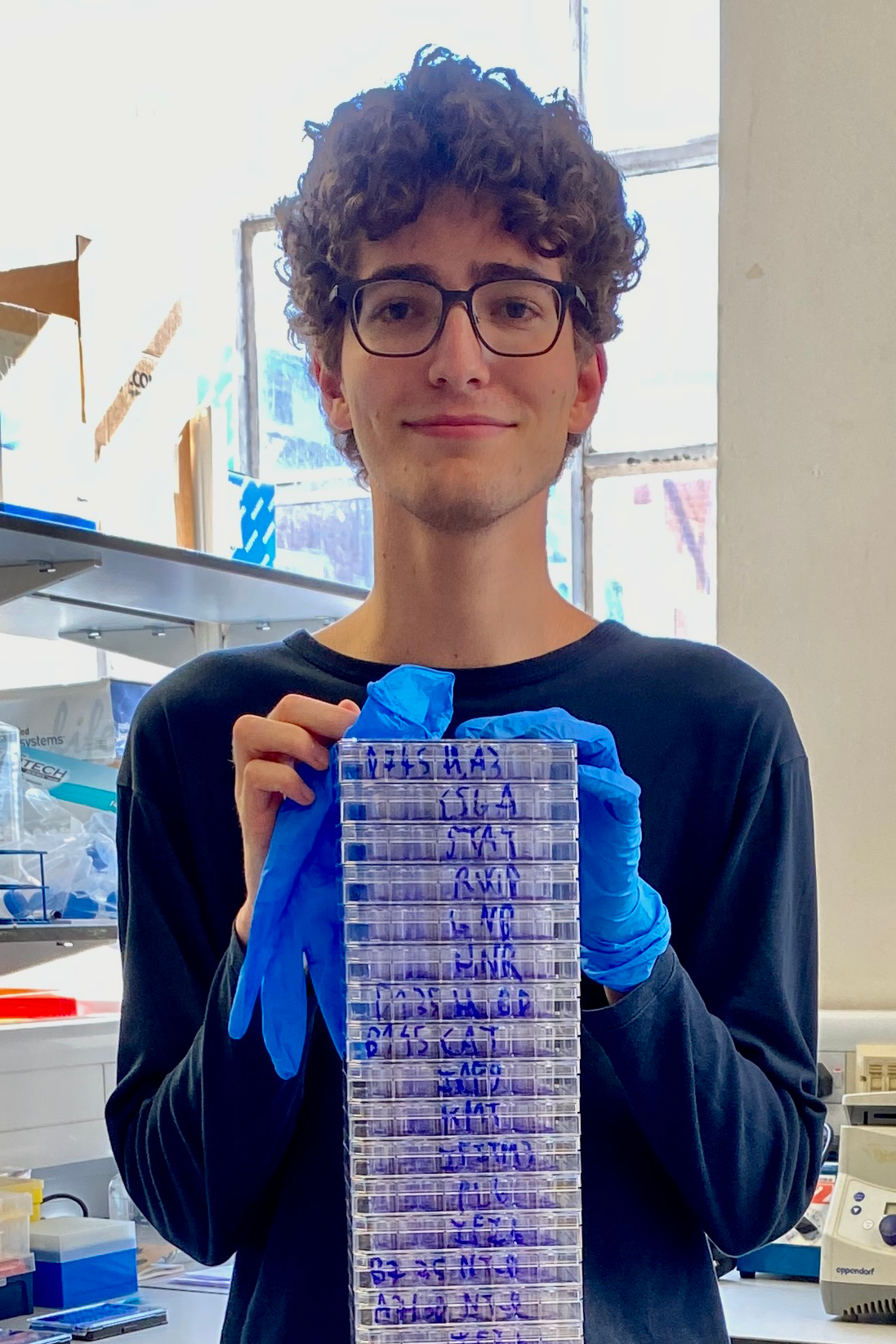 Sacha Frick - MSc Molecular Biology and Pathology of Viruses
Sacha Frick - MSc Molecular Biology and Pathology of Viruses
Why did you choose to study this course at Imperial?
Having experienced the exceptional academic and research environment at Imperial during my BSc, I knew I wanted to pursue my studies there. My BSc also sparked my interest in virology as I learnt to appreciate viruses for their tiny yet lethal and complex nature, which allows for investigation across various biological scales without being limited to a single perspective. This budding interest, along with my previous positive experiences with members of the Department of Infectious Disease, made the MSc in the Molecular Biology and Pathology of Viruses the next logical step for me.Having experienced the exceptional academic and research environment at Imperial during my BSc, I knew I wanted to pursue my studies there. My BSc also sparked my interest in virology as I learnt to appreciate viruses for their tiny yet lethal and complex nature, which allows for investigation across various biological scales without being limited to a single perspective. This budding interest, along with my previous positive experiences with members of the Department of Infectious Disease, made the MSc in the Molecular Biology and Pathology of Viruses the next logical step for me.
What has been your favourite part of the course?
I greatly appreciated the coursework components. Over the course of the MSc, we were instructed to produce a paper abstract, scientific poster, literature review and research grant proposal. These were excellent opportunities to actively engage with the lectures and learn skills that are essential for careers in scientific research. For example, I was able to secure external funding to expand my research project thanks to the grant proposal skills I developed through the coursework.
What was the topic of your research project?
My six-month research project focused on the role of human innate immunity in restricting Zika virus infection. This involved testing 12 genes, which were recently identified as promising antiviral candidates, by individually overexpressing them in epithelial liver cells. After infecting these cells, we quantified the antiviral potency of each gene based on the reduction in Zika virus replication compared to normal control cells. In terms of techniques, this project relied on plasmids and lentiviruses to overexpress the candidate genes, as well as microscopy, PCR and plaque assays to measure Zika virus replication.
What’s the best thing about studying in London?
The accessibility of culture is, to me, the best aspect of life in London. Whether you are interested in exploring renowned museums, experimenting with new cuisines or strolling by historical marvels, there is something for everyone. The constant change in exhibitions, live performances, film screenings, public talks, cultural events and more also ensure there is always something fresh to enjoy. Furthermore, the various clubs and societies, which can be found both at the university and outside of it, are always great occasions to try something new.
How do you think this programme will impact your career?
As someone planning to pursue a career in scientific research, this programme equipped me with the knowledge and skills necessary for a career focused on viruses. Beyond these evident benefits, I believe that spending six months fully immersed in world-leading research was an invaluable experience. Not only did it allow me develop the abilities that can only be gained through extensive involvement in a project but it was also an opportunity to confirm a career in research aligns with my interests. As I seek to gain further research experience through internships before applying for PhDs, I am becoming increasingly aware that a degree from such a respected institution opens up numerous possibilities.
What words of advice do you have for students who want to apply to the course?
As this course is tailored to individuals planning to pursue scientific research on viruses, I believe it is important to ensure that this niche aligns with your aspirations ahead of time. Therefore, if possible, I suggest undertaking a short lab internship ahead of time as a safe way to confirm this is the right path for you. This can also help to strengthen your application and give you a head start with the practical aspects of the course.